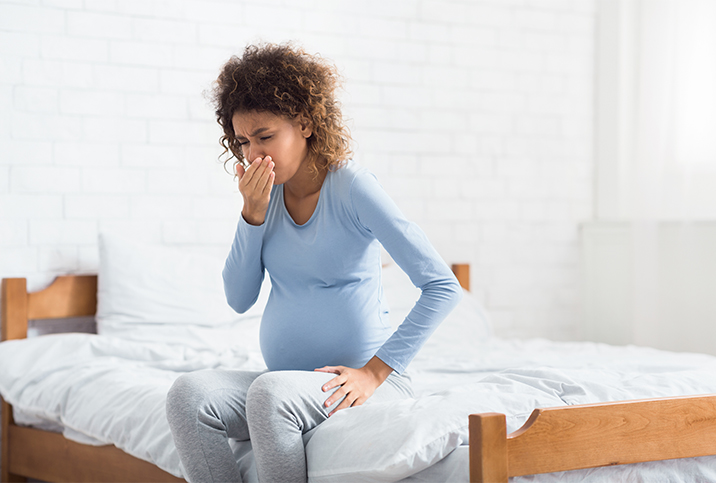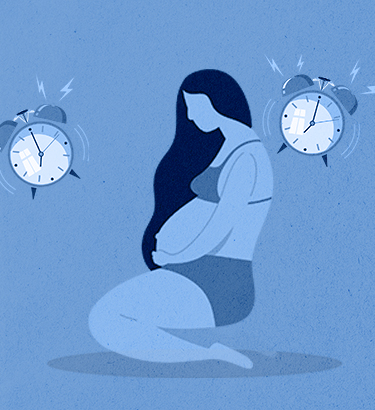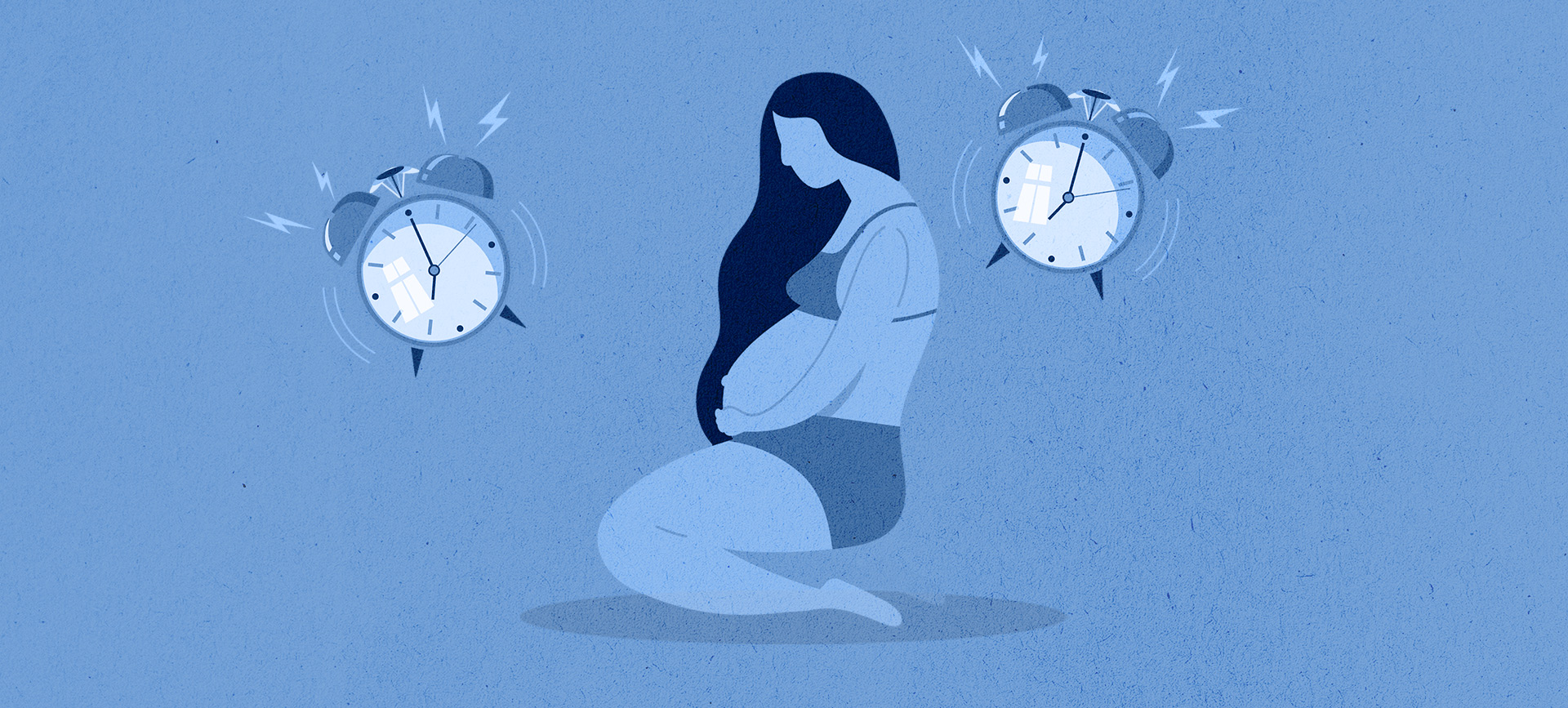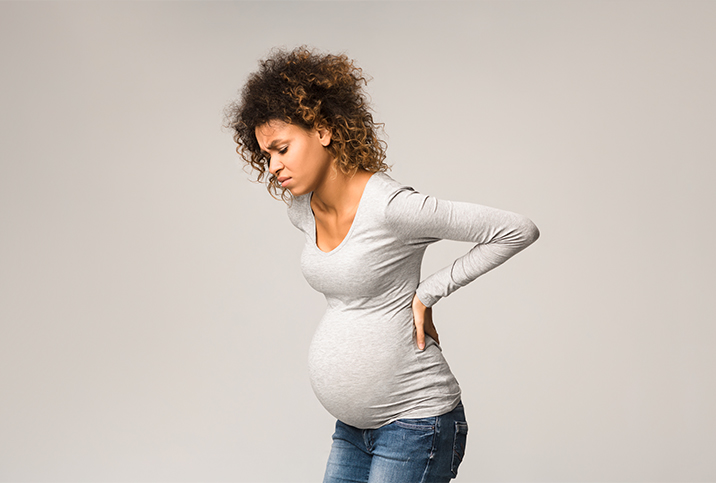
"Five weeks on the dot." That's when Emma Pattee first felt the inner rocking of morning sickness. "It's a very hard time to feel sick, because you probably haven't told many people that you're pregnant yet."
Pattee struggled with juggling work while feeling extremely ill in those first months. The freelance writer wasn't comfortable telling clients about her pregnancy right away—so for the most part, she suffered in silence. Whenever she drove somewhere, she'd have to pull over and throw up.
While most women experience nausea and/or vomiting in the first trimester of pregnancy, a much smaller percentage (0.3 to 2 percent) will face a severe version of morning sickness called hyperemesis gravidarum, which can require hospitalization due to dehydration and weight loss.
Despite the ubiquity of nausea and vomiting during pregnancy, the exact cause of morning sickness and why some people experience it worse than others remains unconfirmed.
"If you've had prior history of morning sickness in a previous pregnancy, you're more likely to get it again," Conti said. "But if you've never been pregnant before, it's really hard to predict."
Kathy Fray, senior midwife and author of Oh Baby: Birth, Babies & Motherhood Uncensored, suggests that even without a definitive cause, we know these symptoms aren't useless—they're a sign our body wants us to rest.
The most common theory is morning sickness is due in part to a rise in pregnancy hormones, including hCG and progesterone. Fray said progesterone "acts as a smooth muscle relaxant, to inhibit the womb from expelling its contents." In other words, it's helping to prevent a miscarriage.
So while morning sickness can make you miserable, it might also be a sign your body is working hard to make a safe space for your baby.
Unfortunately, our jobs and personal responsibilities aren't as adaptive as our bodies, and a common reaction to morning sickness is to power through it. After all, you don't even look pregnant yet. You should be able to go to work and clean the house and spend time with friends just fine—right?
Not so fast. Your pregnancy might still be invisible to most, but there is so much happening in those first few weeks and months. You're building a brand-new organ. And a human! And that takes a lot of energy.
"[Morning sickness] is the woman's body doing everything in its power to make her rest," Fray said. "Rest, rest, rest!"













